Coolfood in Copenhagen
Coolfood hosted its inaugural European Summit on January 25 & 26, 2024. The event was both a celebration of Coolfood’s European members and an opportunity to explore how cities and businesses can work together to deliver delicious climate action for all.
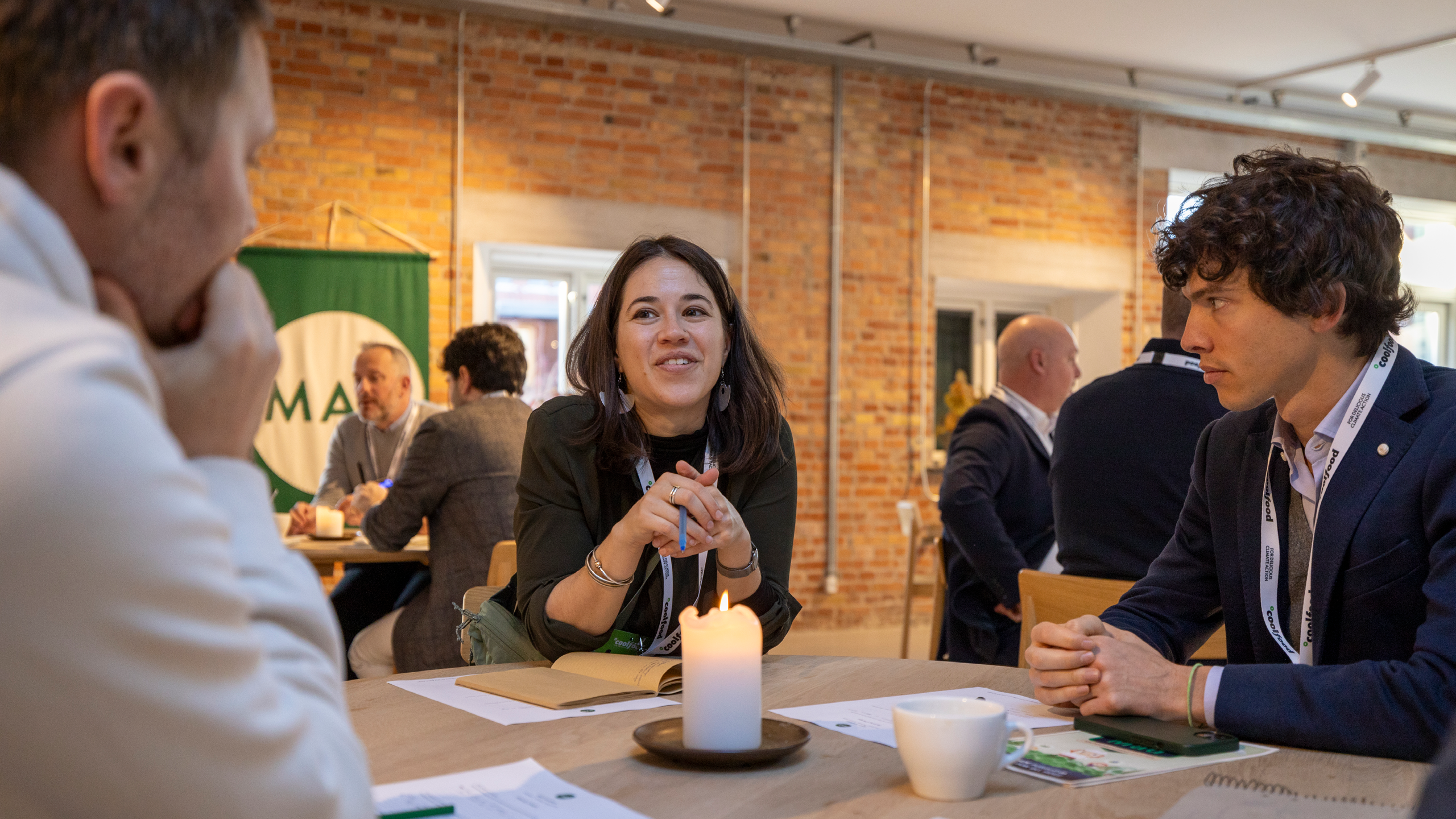
The Summit was a unique opportunity to meet passionate foodies from different industries, with over 100 professionals from city governments, restaurants, contract caterers, corporate dining, universities, hospitals, and NGOs attending.
We were thrilled to convene in the great food city of Copenhagen, as the city joined the Coolfood Pledge in 2019 and has successfully reduced its absolute food-related emissions by 17% to date.
Coolfood is World Resources Institute’s initiative for curbing diet-related greenhouse gas emissions. We give major food providers the tools and expertise to scale healthy, climate-friendly meals that benefit people and nature. Combining deep environmental research with expertise in behavioural science and consumer marketing techniques, food providers serving 8 billion meals rely on Coolfood’s guidance and tools each year. By 2030, Coolfood aims to help food providers serving 13 billion meals to have cut their food-related emissions by 25%.
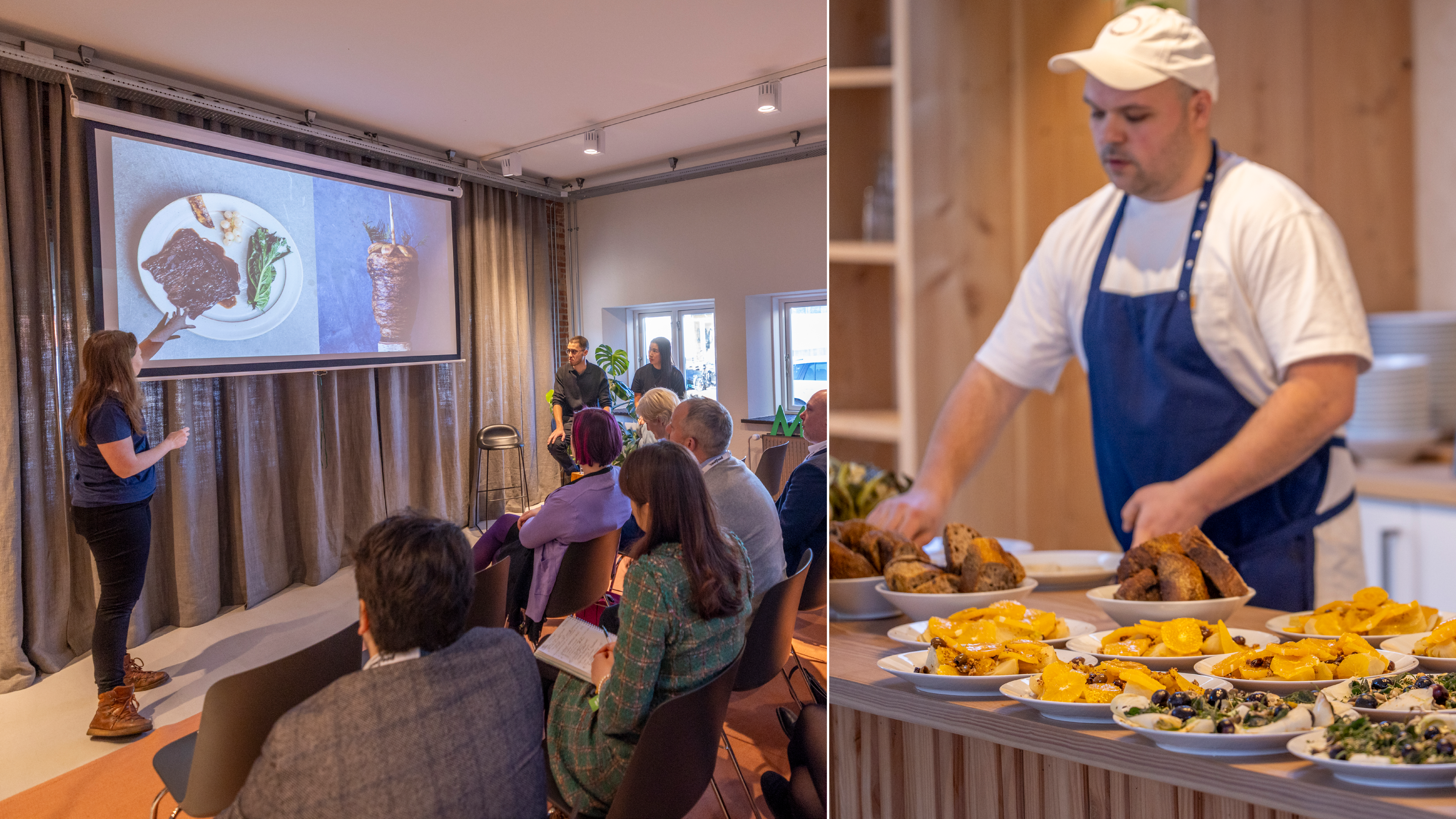
Culinary innovators from Michelin-starred restaurants Noma, Ark and others delivered a training to equip chefs and craftspeople with the knowledge and inspiration to serve more plant-forward meals. Coolfood partnered with MAD Academy to host this special session. The cornerstone of the day was WRI’s Playbook for Guiding Diners Toward Plant-Rich Dishes in Food Service, focusing on themes of taste, look, and tell.
What to Watch in 2024 on Food and Climate Action
WRI’s Stientje van Veldhoven (Vice President and Regional Director for Europe), Anne Bordier (Director of Food Initiatives) and Edwina Hughes (Head of Coolfood) presented key stories for food and climate action in 2024. In Europe, 29 million people are employed in either agriculture or the processing, selling or serving of food and beverages. From methane emissions to supply chains to consumer choices, this session aimed to not only help attendees understand what is happening as the year unfolds, but why.
The presentations underscored the urgency of immediate climate action through shifting diets. While polls show that consumers are interested in making more sustainable food choices, leadership from industry is essential to make those choices more readily available and apparent. Still, an audience poll revealed 40% of attendees saw a worry about backlash from consumers as the biggest challenge to reducing their organization’s food-related emissions.
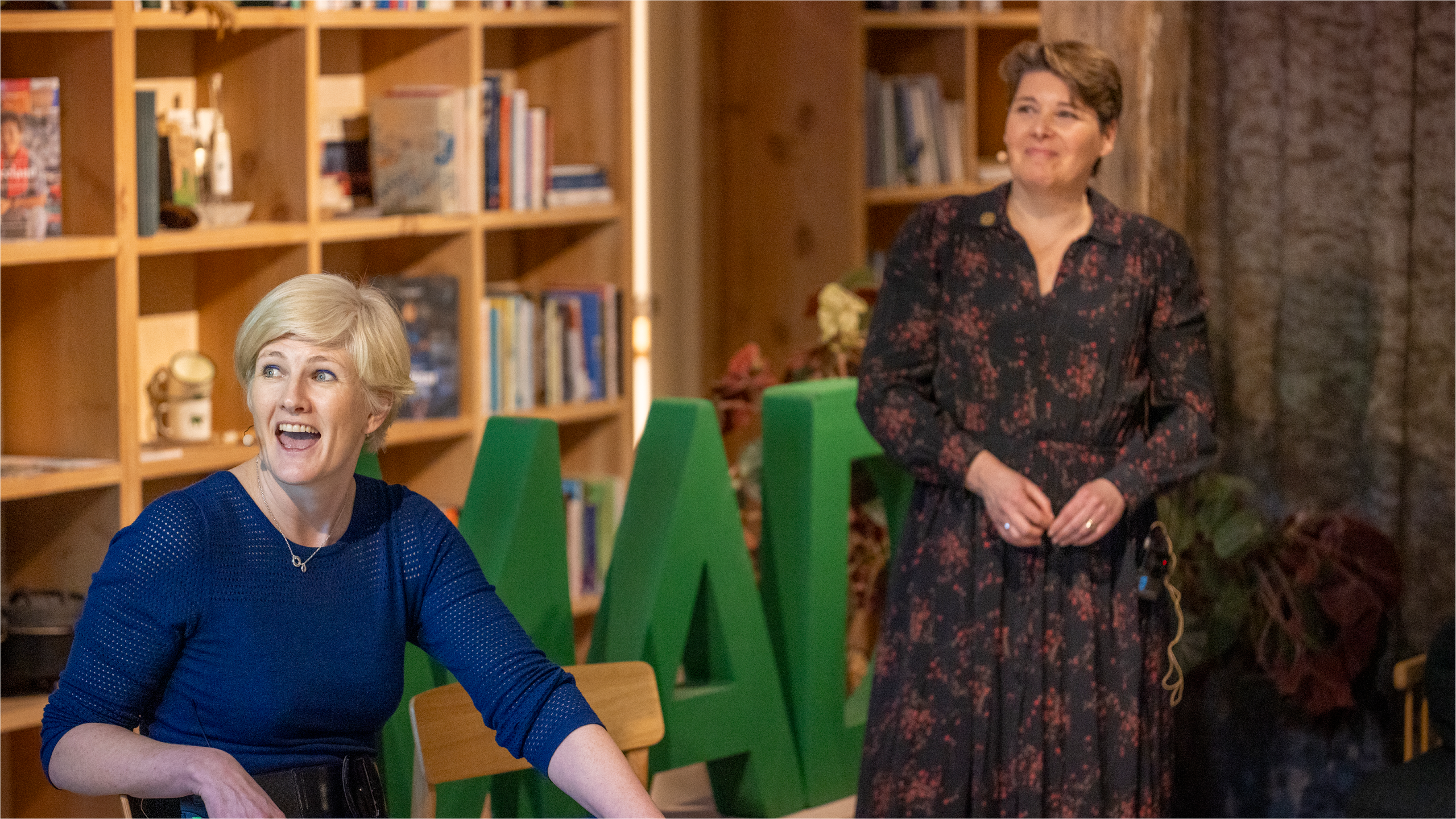
Edwina shared the encouraging progress of Coolfood’s early-joiner cohort, who have seen a per-plate emissions reduction of 10% compared to baseline, while emphasizing the need for accelerated action to meet the target. The biggest factor driving members’ success is reduced purchasing of beef & lamb.
This session was followed by a networking reception where attendees formed connections over delicious bites from one of Copenhagen’s most exciting restaurants, Hija de Sanchez.
Dynamic Voices
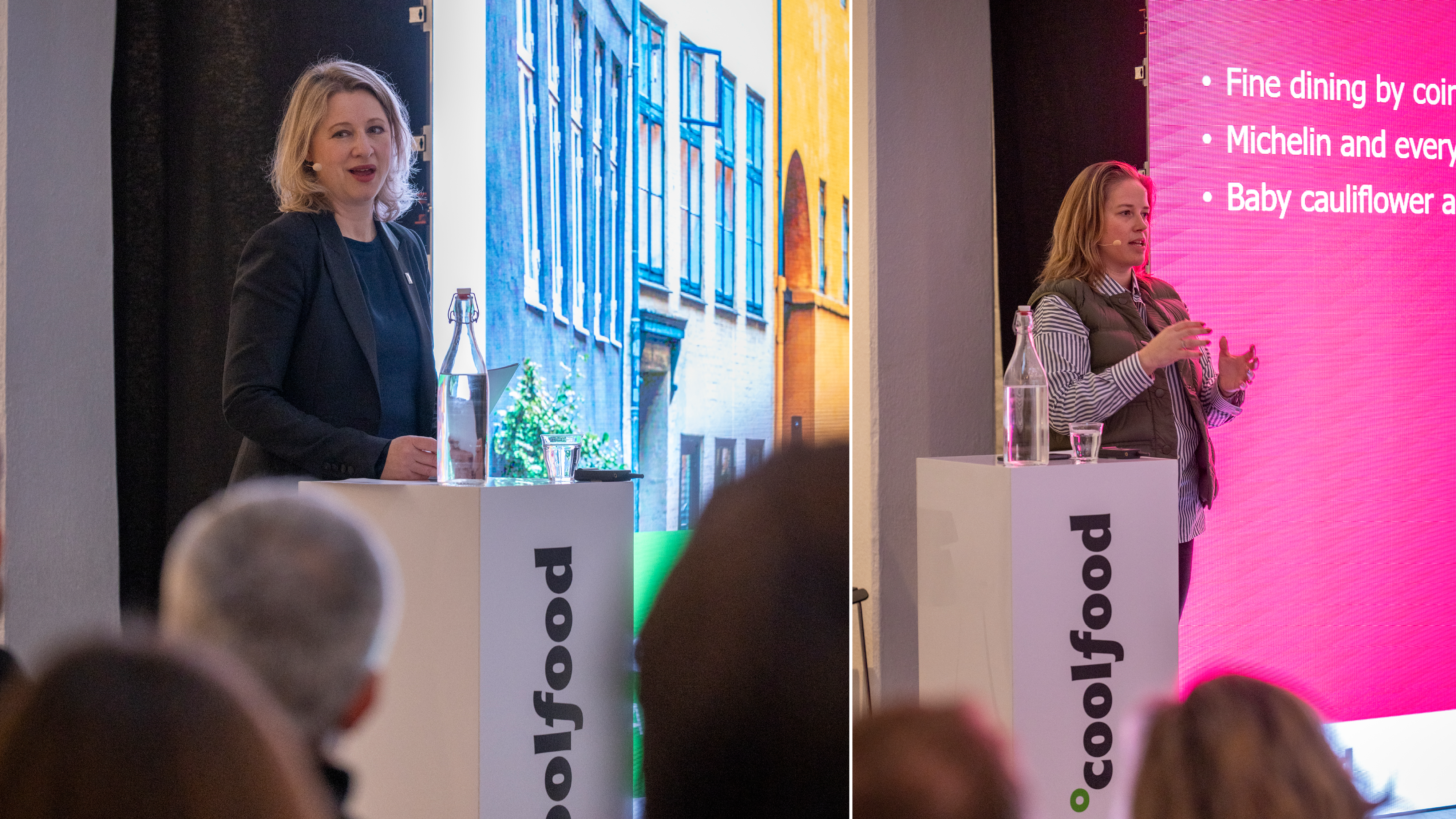
A range of leaders brought unique perspectives on ways to improve Europe’s food system. A few special guests included:
The Lord Mayor of Copenhagen, Sophie Hæstorp Andersen, who provided a warm welcome as well as an inside look at where the city will head next on food.
Renowned Danish chef Kamilla Seidler Trebbien who discussed what it takes practically, mentally and emotionally to create a socially minded restaurant.
And European Commissioner for Health & Food Safety Stella Kyriakides, who prepared a special message for why legally mandated targets to reduce food waste are needed, and promoted the importance of diets that are both good for people and the planet.
Europe’s Food Future
The panel “A Vision for a Healthy, Sustainable Food Future in Europe,” featured Ida Auken (Member of Parliament, Denmark), Isabel Boerdam (Founder of Week Without Meat Europe), Claire Bury (Deputy Director, EU Commission), Filippo Gavazzeni (Coordinator of the Secretariat, Milan Urban Food Policy Pact), and Morten Hassing (Head of Food Product & Performance for Denmark, ISS).
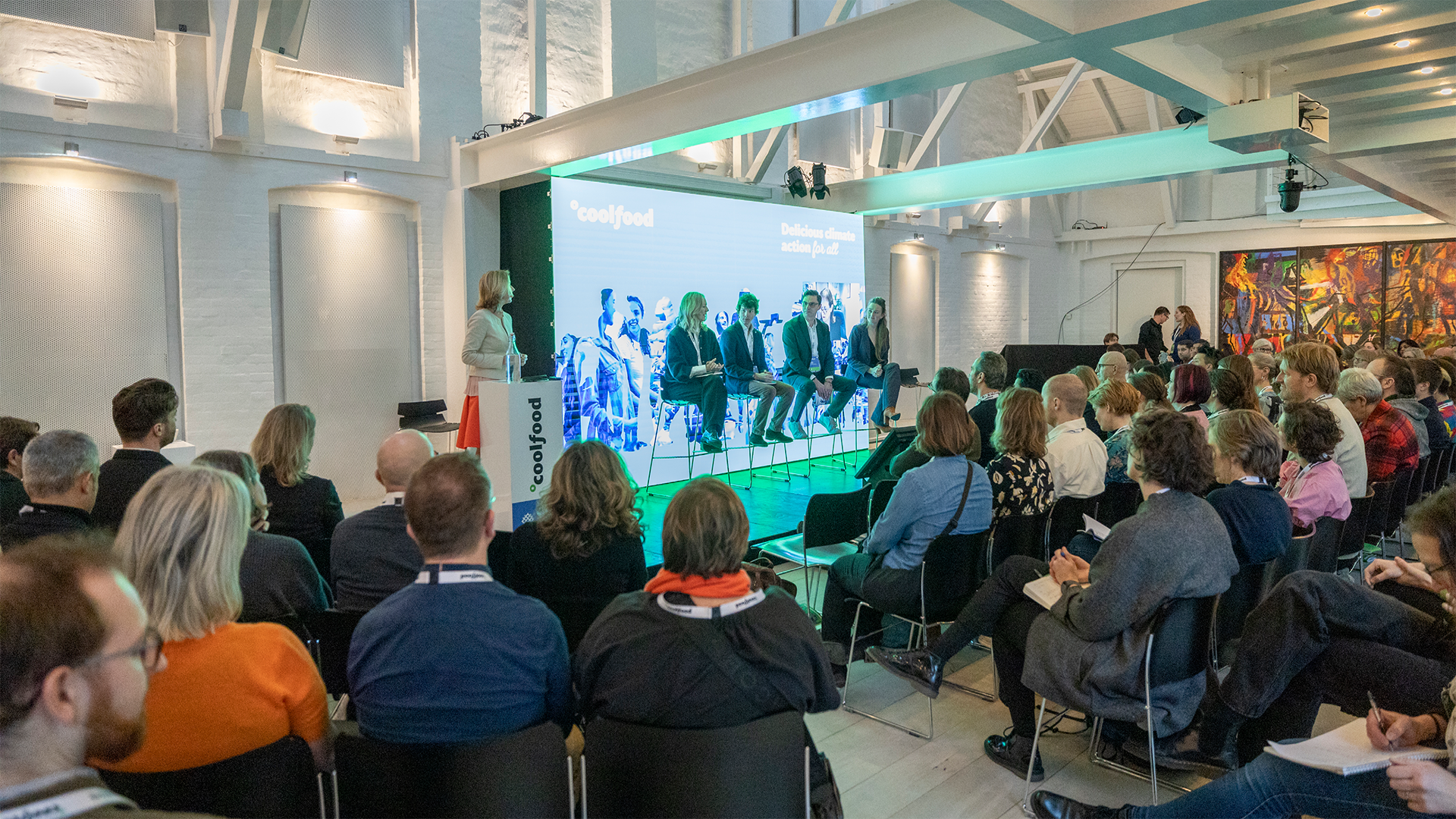
The discussion was anchored by two timely announcements: the Danish Action Plan for Plant-Based Foods as well as the COP28 UAE Declaration on Sustainable Agriculture, Resilient Food Systems, and Climate Action. Panellists spoke of the need for collaboration between supernational, national and subnational governments, as plans made on a national level need to be executed locally. Also important are the interactions between policy, food businesses, and NGOs encouraging climate-friendly dining. Without collaboration between these different sectors, it’s impossible to imagine a sustainable food future.
Cutting-Edge Behavioral Science
WRI’s Senior Behavioral Scientist Dr. Sophie Atwood presented findings from WRI’s upcoming Playbook 2.0. The updated Playbook will include 90 techniques that could influence consumer behavior split across 6 categories – Price, Promotion, Presentation, Placement, People, and Product. Of those 90 techniques, we have identified 18 no-regret techniques that are highly rated by both the literature and industry experts.
Some examples of these techniques include increasing the ratio of plant-rich dishes to meat dishes, using indulgent language to describe plant-rich dishes, and publicizing the environmental benefits of plant-rich dishes using marketing materials.
The Playbook will also include a group of promising techniques, which have been proven to work but industry has yet to adopt.
Coolfood Members Share Insider Insights
A second panel explored insights from organizations that have committed to the Coolfood Pledge – a target to reduce food-related emissions by 25% by 2030 – and who have implemented the Playbook’s behavioral science strategies. They included Sarah Bruinaars (Project Officer for SchoolFood4Change, City of Ghent), Kaj Török (Chief Sustainability Officer, MAX Burgers), Helene von Reis (Business Area Manager for Food at IKEA of Sweden AB, Inter IKEA Group), and Mikkel Zinck Schrøder (Head of Business and Growth, City of Copenhagen).
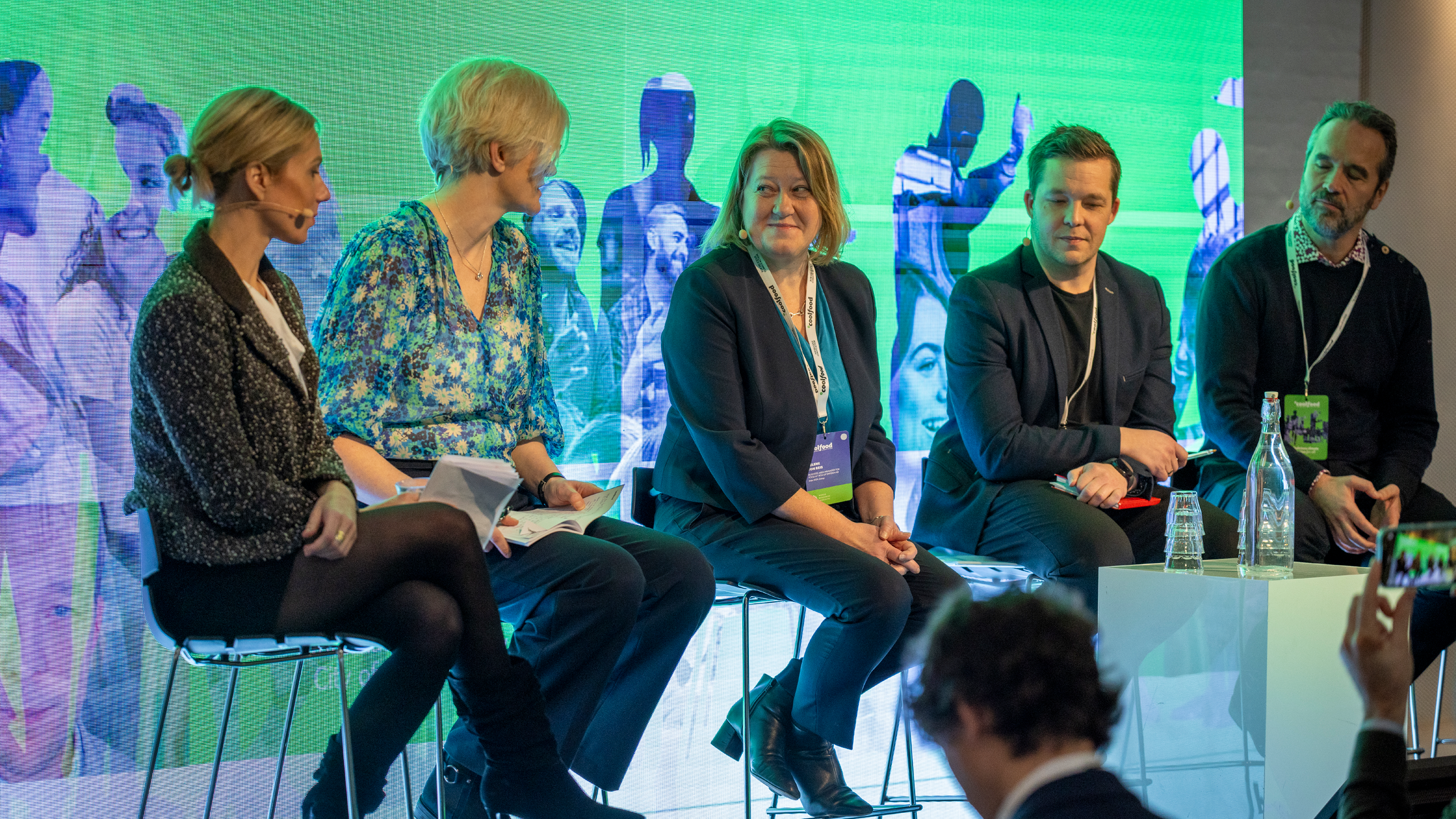
Panellists reflected on the techniques that have worked for their organizations and moments to learn from. The idea of making adjustments that aren’t immediately obvious to diners resonated with several of the speakers. While they have seen success with broad education around food sustainability, particularly with school children, sometimes the easiest techniques are the ones that happen without making the consumer think too much.
Panellists also emphasized the importance of engaging and empowering chefs with trainings specifically focused on cooking delicious plant-based foods.
Food for Everyone, Made Cool
The Summit wrapped up with a lunch reception featuring chef-created healthy, sustainable meals designed for Copenhagen’s schools, senior housing and social housing. The menu included three dishes whose recipes we analyzed and were able to certify with the Coolfood low-carbon menu label.
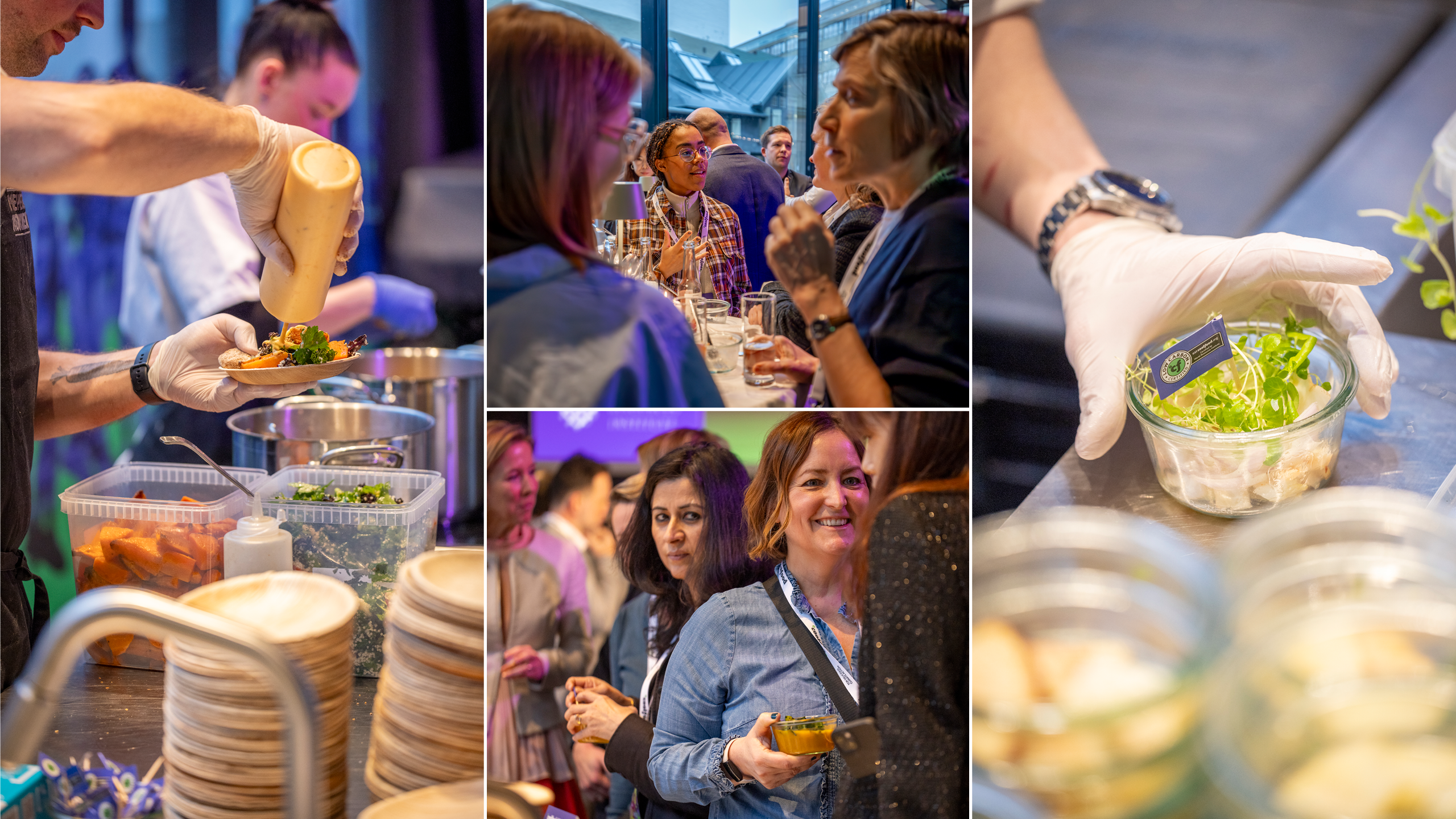
Food for Thought
Collaboration is key to our success in spreading the word about sustainable diets. Achieving big change requires a big movement, and we are thankful to have had the opportunity to convene some of the leading people spearheading this work across Europe.
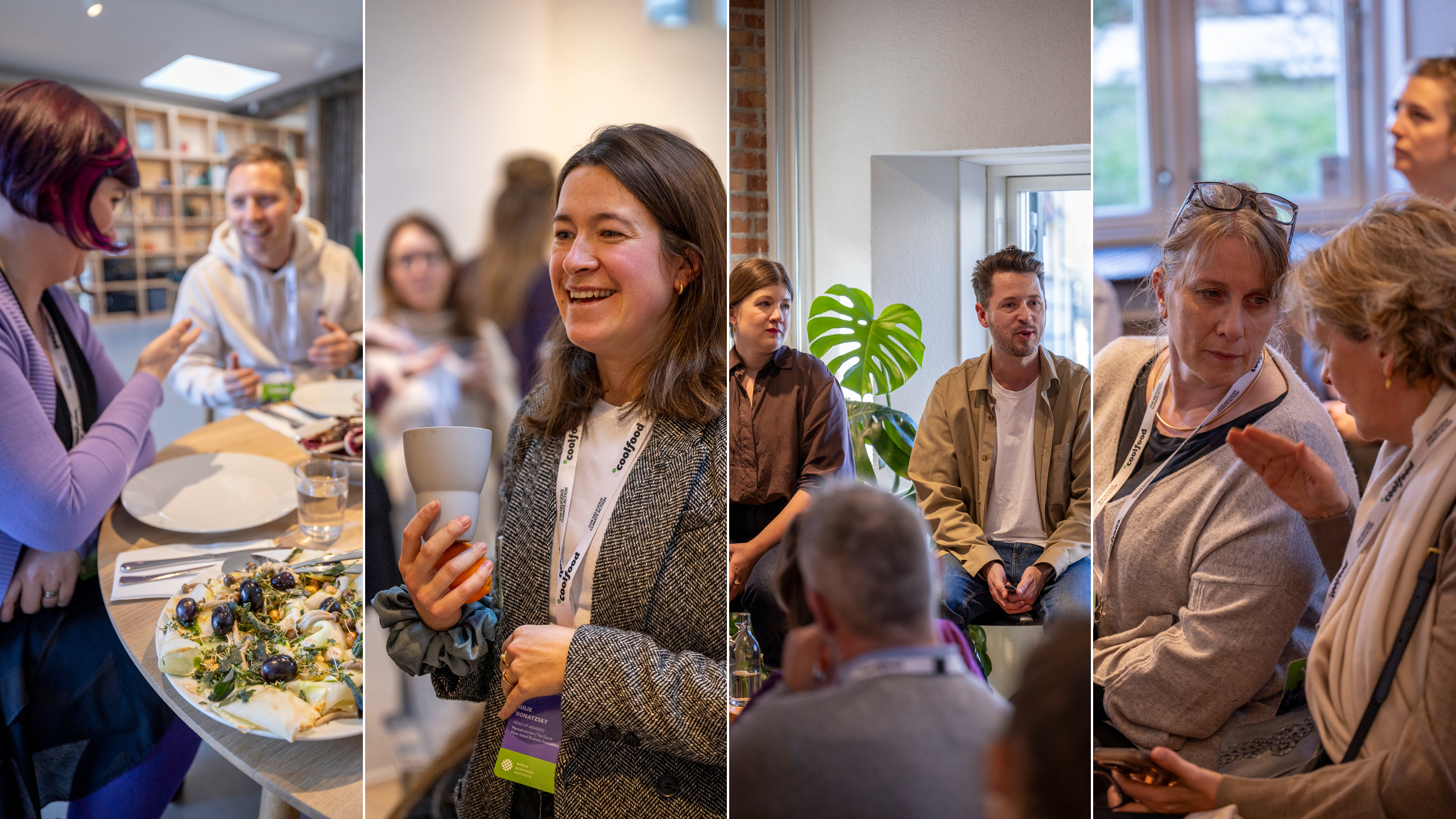
No matter where you are in your journey to reducing your food-related emissions, Coolfood can help you level up with tailored behavior change workshops, climate impact of food workshops, and more. We aim to make climate action deliciously fun, and we look forward to working with you.
